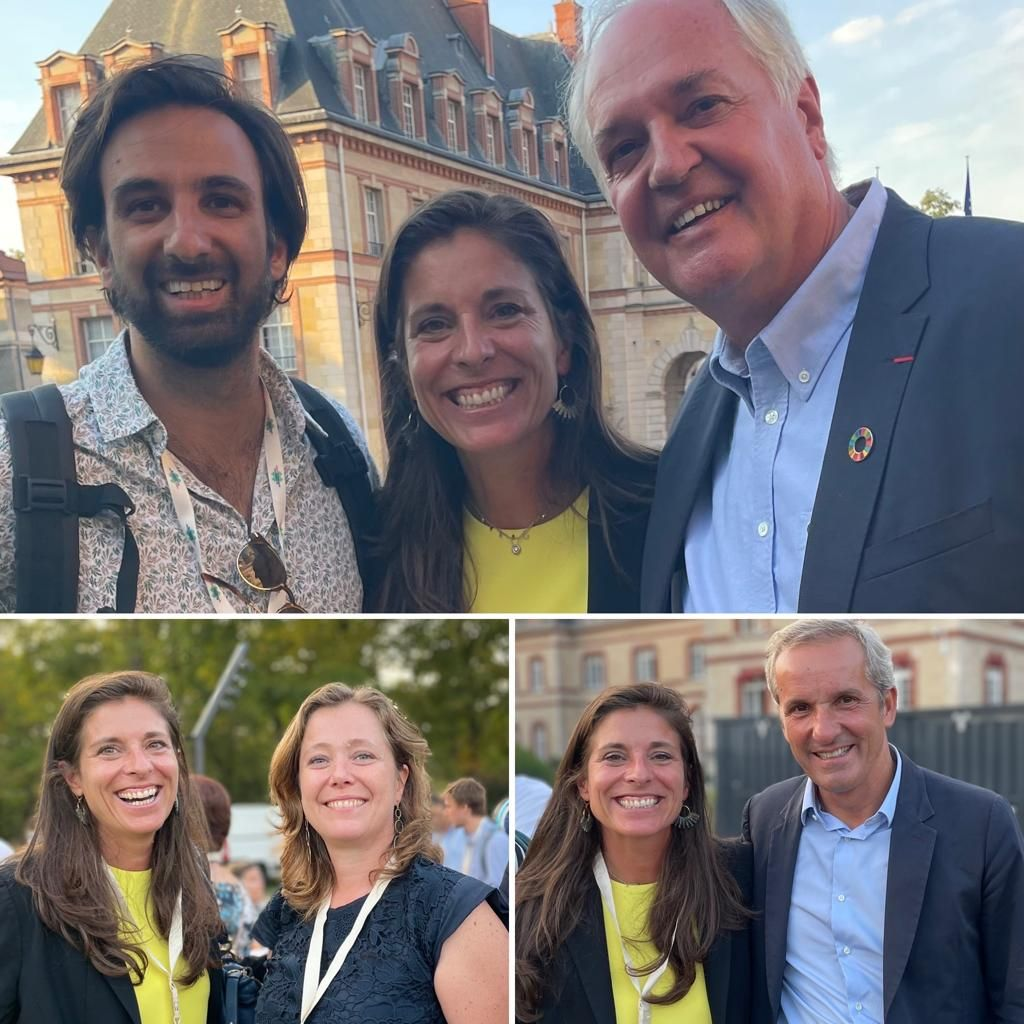
As an introduction to the theme of this year’s Summer University on Tomorrow’s Economy (UEED): “Sobriety, I write your name,” the evening before, at the French Entrepreneurs Meeting (REF), Elisabeth Borne had “called on companies to establish in September their sobriety plan.” The objective is to reduce energy consumption in France by 10% within two years.
Some players like Carrefour have already announced that they want to go further:
“With the request made by the Prime Minister, we will go further than that; we will reduce our energy consumption by 20% by 2024,” stated Alexandre Bompart, CEO of Carrefour.
The word sobriety that we find on everyone’s lips this fall still has multiple definitions that differ according to each person’s point of view.
The French Agency for Ecological Transition (ADEME) explains that “sobriety brings together multiple realities through frugality, simplicity, zero-waste, efficiency, energy sobriety, or even deconsumption. The common denominator of these various approaches is the search for moderation in producing and consuming products, materials, or energy. »
Some players even affirm that this cannot be done without degrowth. It a not a so easy subject, but one thing is sure, sobriety is essential today for companies and pushes them to transform their models and practices.
1. The role of companies
The time has come to put CSR at the heart of business models. We have the power to act. Every effort, every step, no matter how small, counts. Change takes place at every level, requiring the mobilization of every country, company, and individual.
Only organizations with a positive impact will thrive. They are the ones that employees will choose, consumers, investors, and partners.
As leaders, we have the power to embrace this revolution. There is a way to reconcile business & sustainability. But this will not happen by chance. For a better world, we must create more virtuous models.
2. Implement more virtuous models; how?
Purpose
“Today, employees, customers, shareholders, and citizens want this transition; I think we will continue to develop purposes for businesses and mission-led companies because I’m convinced that it’s the way of the future.”

Roland Lescure, Minister Delegate in charge of Industry, UEED 2022
For major strategic decisions, as in everyday life, the purpose is analogous to a star that guides choices and commits stakeholders to a common destiny. The way to choose it is crucial because it must come from the heart of the employees and those around the company to be effective, i.e., resonate with the company’s activities, determine its singularity, and reveal its deep culture and values.
In 2019, the Pacte Law gave us an impressive framework to help us in the transformation and include the purpose in the company’s bylaws.
Companies wishing to go further in their commitment can choose to become a mission-led company and include the purpose in their bylaws and corporate goals. The Company is then supported by a Mission Committee and an Independent Third-Party Organization to ensure the proper implementation of the mission.
Involve stakeholders
One thing is sure; the transition will have to be done collectively. A company cannot transform itself in a vacuum; it transforms within an ecosystem.
Involving all its stakeholders is crucial: being accompanied by experts, forming partnerships, setting up consortia with these competitors to move forward together…
Karen Lemasson from Mustela gave us the example of a consortium set up with its competitors to remove plastic from packaging.
Train employees
Among the stakeholders, employees have a particularly crucial role to play.
The fundamental challenge is first to understand the context in which we live. Learn how the world works to assess your activity in this context. It is, therefore, important to train leaders, but it is also essential to prepare all your employees and make them agents of change. Make employees collaborator-actors.
Communicate without greenwashing
Having reliable communication allows for consistency and alignment, and it is not always easy to “do well” in this area.
Here are the five proposals shared by Léa Falco of Pour Un Réveil Écologique to communicate without greenwashing:
– Be honest in your communication
– Surf on the greenwashing of its competitors: do not hesitate to show that we are trying, that we are on the way: I’m not perfect, but I’m improving.
This is also the choice that Cécile Ribour from MAIF has chosen to illustrate, explaining that she has decided to communicate transparently even when specific objectives haven’t been achieved.
– Highlight your values and commitments without exaggerating them
– Make creative people work under constraints: “I don’t want that” we prevent ourselves from doing things
– Encourage your sector to get involved and develop communication guidelines. Work with others to move the sector forward, as each sector is unique.
One thing is sure: The transition will not happen without courage.
Finally, as we reimagine the way we do business, reimagining leadership is fundamental.
The transformation will not be possible without courageous and empathetic leadership:

“Courage allows you to set targets that science tells you that you need, targets to win, not targets that you can get away with & allows to take responsibility of your total impact.” Paul Polman
Let’s have the courage to act, persevere, be ambitious… to put purpose at the heart of the business and build a regenerative economy where companies give back more than they take from the planet.